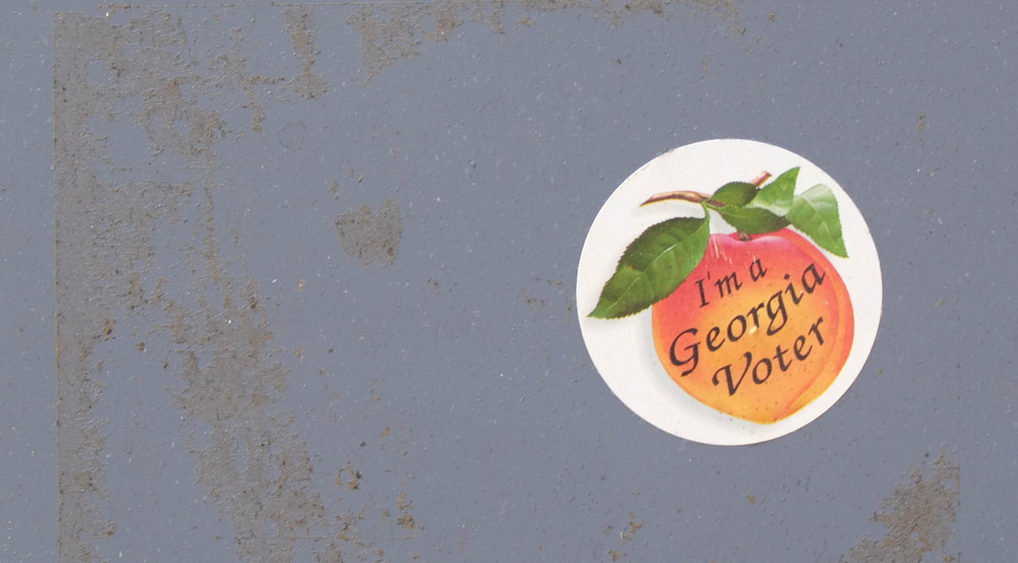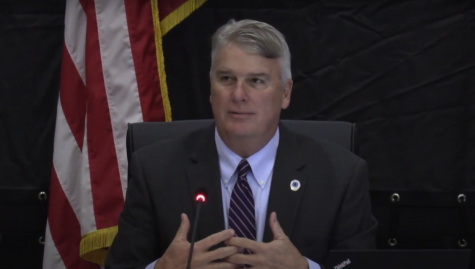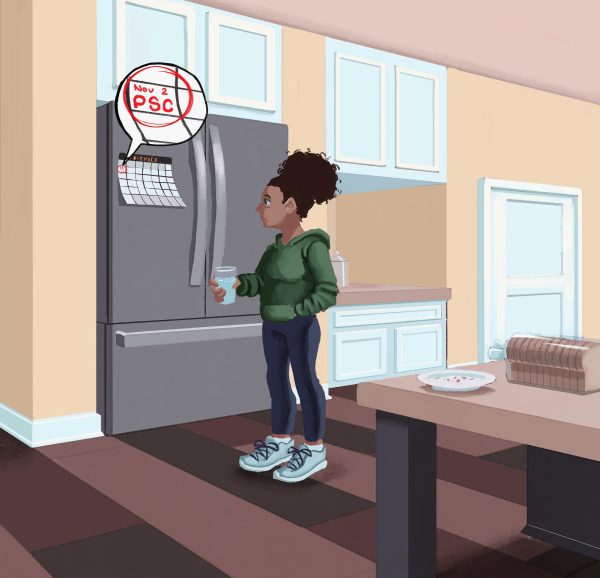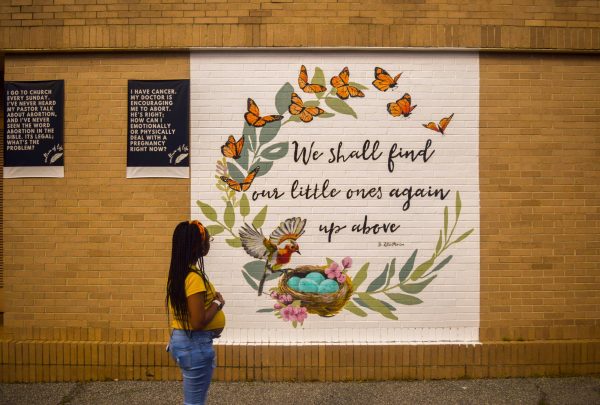What Are You Voting For?
An explanation of what will be on the ballot during the midterm elections
Election day 2018 is fast approaching with deadlines for voter registration coming up in the next few days. Those deadlines are Oct. 9 for Georgia residents and Oct. 22 for those voting in Alabama. The ballot in Georgia will contain five amendment questions and two referendum questions this November that residents will be asked to vote on.
Ballot measures are purportedly written in ways that make them difficult to decipher for the average voter. Ballotpedia remarks that “for the 2017 ballot, the average ballot question required 20 years of U.S. formal education [graduate school-level of education] to read and comprehend, according to the FKGL formula.”
Luckily, this article will help you translate your Nov. 6 ballot ensuring that you are educated and informed on the issues. Much of the information in this article is culled from ballotpedia.org. Ballotpedia is a non-profit organization that seeks to produce a more informed electorate. For more on Ballotpedia, click here.
BALLOT MEASURES APPEARING ON THE GEORGIA BALLOT:
Amendment I
A portion of Revenue from Outdoor Recreation Equipment Sales Tax Dedicated to Land Conservation Fund Amendment (Budgets and Environment)
This amendment seeks to create the Georgia Outdoor Stewardship Trust Fund. The amendment states that it will not increase the Georgia state sales tax rate in the creation of this fund. It would allow for the Georgia General Assembly to devote up to 80% of sales or use taxes collected by sporting goods stores in the state to make a trust fund, which would provide for the preservation and protection of conservation lands. These lands would include “lands that protect drinking water sources and the water quality of rivers, lakes, and streams; to protect and conserve forests, fish, wildlife habitats, and state and local parks; and to provide opportunities for our children and families to play.” The amendment also provides a sunset provision of 10 years that can be extended up to 20. It also contains language which would repeal the law if a superseding law is passed.
What a “Yes” vote means – Yes, amend the constitution to create a trust fund which raises revenue from taxes already imposed on sporting goods stores that would allow for the conservation of lands as mentioned above.
What a “No” vote means – No, do not amend the constitution to create this trust fund.
Amendment 2
The Business Court Amendment (Judiciary)
This amendment would create a statewide business court that would be used under certain circumstances. Judges for this court would be appointed by the governor and be approved by a majority vote of the Senate and House Judiciary committees. Judges on this court would serve a 5-year term with no limits to the number of terms they may serve. The principal argument against this program made by its detractors has been that judges to these courts should be elected and not appointed. This amendment stems from an executive order issued by governor Deal in 2017, which created the Court Reform Council. A council which was created to “review current practices and procedures within the judicial court system and the administrative law hearing system and make recommendations to improve efficiencies and achieve best practices for the administration of justice.” This led to a pilot program of two local business courts (one in Fulton, the other in Gwinnett) being created. The stated purpose of these two pilot business courts was “to provide judicial attention and expertise to certain complex business cases and to facilitate the timely and appropriate resolution of such disputes.” This amendment would create courts that would deal exclusively with businesses and their legal complexities beyond the two pilot programs in Fulton and Gwinnett. This provides a venue for cases that involve complex business or commercial issues.
What a “Yes” vote means – Amend the constitution to create business courts as described above. Judges appointed by governor, confirmed by Senate/House Judiciary committees, 5-year term, no limit to number of terms.
What a “No” vote means – Do not amend the constitution to create business courts.
Amendment 3
Forest Land Conservation and Timberland Properties Amendment (Land use / Environment)
In 2008, an amendment was approved by voters that created a class of property known as Forest Land Conservation Use Property (FLCUP). This class was created to change the taxed rate on property containing more than 200 acres of forested land. Created at the same time was a grant program designed to help local governments address lost revenue due to FLCUP changes. Amendment 3 alters this original amendment in three ways:
- It allows the legislature to pass a law to keep up to 5 percent of the value of these grants for the administration of the program.
- It allows the legislature to create a new class of property – Timberland property – the stated purpose of which would be to allow for commercial logging on such property.
- The legislature would develop an ad valorem taxation assessment for Timberland property.
This measure has companion legislation that has already been signed into law as HB 85.
What a “Yes” vote means – Yes, amend the constitution to change the formula used to calculate tax on Forest Land Conservation Use Property, create a new land use designation for commercial logging and timber operations, and establish a percentage of local grant assistance that could be kept by the state for administration costs associated with the program.
What a “No” vote means – Do not amend the constitution to change taxation formulas for FLCUP, create new Timberland Property designation, or establish a percentage of grant assistance kept by the state for administration costs.
Amendment 4
Marsy’s Law Crime Victim Rights Amendment (Criminal Justice)
Marsy’s Law is a crime victim’s rights amendment, which is part of a concerted national campaign to pass such laws in many states. This is likely the only amendment on the ballot this November that many voters will be familiar with (For background information on Marsy’s law at the national level, visit marsyslaw.us). This amendment would grant victims of crimes certain rights that they are not currently afforded in the state of Georgia. Among these rights are the following:
- The right to be notified about and present at proceedings
- The right to be heard at proceedings involving release, plea, sentencing, disposition, or parole of the accused
- The right to have the safety of the victim and victim’s family considered when making bail or release decisions
- The right to be protected from the accused
- The right to be notified about release or escape of the accused
- The right to refuse an interview or deposition at the request of the accused
- The right to receive restitution from the individual who committed the criminal offense
Georgia already has a Crime Victim’s Bill of Rights. Marsy’s Law would expand upon and codify these rights within the constitution. Opposition to the law has come from the Georgia Public Policy Foundation, who have stated the following considerations:
- The cost of more attorneys and support staff for victims and of detaining more people accused of crimes
- The risk of infringing the rights of someone accused of a crime
- Accusations could be falsified by purported victims.
- The accused could lose their rights to be presumed innocent until convicted.
Supporters of the law in Georgia have included victim’s rights and advocacy groups from all over the state.
What a “Yes” vote means – Yes, please amend the constitution to add language about the rights of victims of crime, including those above.
What a “No” vote means – No, do not amend the constitution to add language concerning victim’s rights.
Amendment 5
School Sales Tax Referendums Amendment (Education/Taxes)
This amendment would authorize the school district or group of districts within a county to call for a sales and use tax referendum. This would allow districts to impose, levy and collect a 1% tax that would last up to 5 years. This would be split among districts operating within the county collecting the tax. If more than one district is present in the county, an agreement would be reached concerning how to split the money. Georgia has a constitutionally protected sales tax for education, and local voters can currently approve an additional 1% for education projects proposed by Local Boards of Education. This amendment codifies the language of how the money should be split when multiple districts operate within the same county. It expands upon the 1996 amendment that created the referendum system as it exists. Originally, the 1996 system allowed Local Boards of Education to request the referendum. Amendment 5 would extend that to districts operating within counties that had a majority of the students within the county.
What a “Yes” vote means – Amend the constitution to extend the referendum request option beyond local boards of education to a district or districts operating within a county possessing the majority of that county’s students, based on full time enrollment statistics.
What a “No” vote means – Do not Amend the constitution to extend the referendum request option beyond local boards to a district or district operating within a county.
Georgia Referendum A
Homestead Municipal Property Tax Exemption Measure (Taxes)
This ballot measure would provide a measure of exemption to ad valorem taxes. This measure would allow homeowners within cities situated in multiple counties that has a public transportation system and an independent school system to be exempt from property taxes on a home in which they live. The value of this exemption would be equal to the difference between the home’s assessed value for the current year and the adjusted base year value of the home.
What a “Yes” vote means – Support the measure to create this exemption.
What a “No” vote means – Oppose the measure to create this exemption.
Georgia Referendum B
Include Business-Financed Properties in Existing Non-Profit Mentally Disabled Housing Tax Exemption Measure
This measure would provide clarification in the ad valorem taxes associated with non-profit homes for the mentally disabled. As it is currently written, the tax codes associated with this exemption do not expressly grant exempt status to funds obtained through businesses or corporations. This measure ensures that funding obtained from businesses or corporations for construction or renovation of homes for the mentally disabled is granted the same exemption.
What a “Yes” vote means – Supports the measure to clarify the tax-exempt status of projects when funds are procured in this way
What a “No” vote means – Opposes the measure to clarify the tax-exempt status of projects when funds are procured in this way










